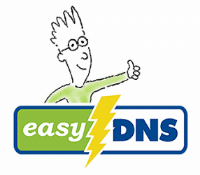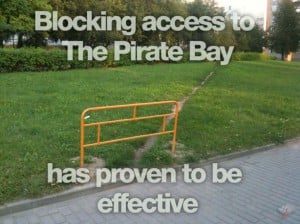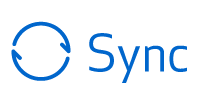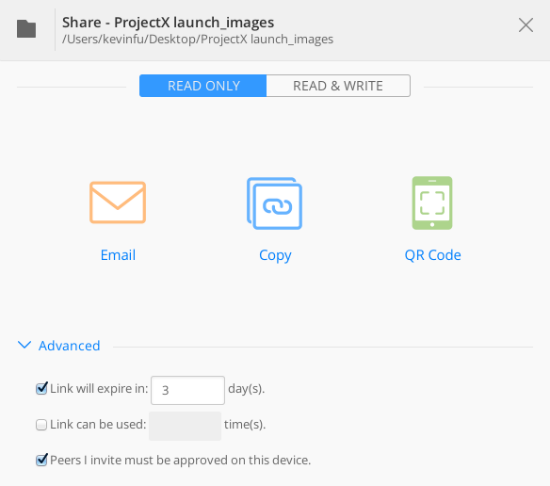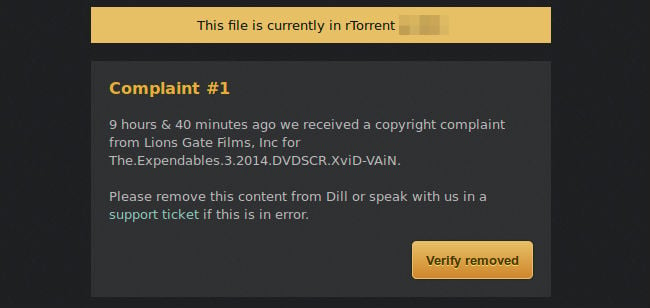Torrentfreak: “KickassTorrents Goes Secure, Encrypts Traffic For All Visitors” plus 2 more |
- KickassTorrents Goes Secure, Encrypts Traffic For All Visitors
- “Six Strikes” Anti-Piracy Warnings Double This Year
- UK Police Accuse Domain Name Registrar of Facilitating Criminal Activity
| KickassTorrents Goes Secure, Encrypts Traffic For All Visitors Posted: 31 Aug 2014 01:55 AM PDT
One way to prevent this from happening is by using SSL encryption. This is supported by more and more sites, and last year Google even went as far as encrypting all searches by default. Most of the larger torrent sites such as The Pirate Bay and Torrentz also offer SSL support. However, KickassTorrents is the first to force encryption. This means that everyone who visits the site will now be sending data over a secure https connection. TorrentFreak spoke with the KickassTorrents team who told us that the new feature was implemented by popular demand. “We’re just thinking about those people who will feel safer when they know all the data transferred between them and KAT is completely encrypted. People requested it, so we respond,” the KAT team informs TF. SSL encryption will prevent one’s boss, school, or ISP from monitoring what pages are visited what data is sent or retrieved from the site. However, it’s still possible to see that the KickassTorrents domain was accessed, and how much time was spent there. Also, it’s worth emphasizing that it doesn’t anonymize the visitor’s IP-addresses in any way, as a VPN or proxy might. That said, enabling encryption is a good way for KickassTorrents to offer its users a little more security. On top of that, Google recently noted that it would prioritize SSL encrypted sites in its search results, something the site’s operators probably wont mind either. Source: TorrentFreak, for the latest info on copyright, file-sharing and anonymous VPN services. |
| “Six Strikes” Anti-Piracy Warnings Double This Year Posted: 30 Aug 2014 01:26 PM PDT
These efforts are part of the Copyright Alert System, an anti-piracy plan that aims to educate the public. Through a series of warnings suspected pirates are informed that their connections are being used to share copyrighted material without permission, and told where they can find legal alternatives. During the first ten months of the program more than more than 1.3 million anti-piracy alerts were sent out. That was just a ramp up phase though. This year the number of alerts will grow significantly. “The program doubles in size this year,” says Jill Lesser, Executive Director of the overseeing Center for Copyright Information (CCI). Lesser joined a panel at the Technology Policy Institute’s Aspen Forum where the Copyright Alert System was the main topic of discussion. While the media has focused a lot on the punishment side, Lesser notes that the main goal is to change people’s norms and regain their respect for copyright. “The real goal here is to shift social norms and behavior. And to almost rejuvenate the notion of the value of copyright that existed in the world of books and vinyl records,” Lesser said. The notifications are a “slap on the wrist” according to Lesser, but one which is paired with information explaining where people can get content legally. In addition to sending more notices, the CCI will also consider adding more copyright holders and ISPs to the mix. Thus far the software and book industries have been left out, for example, and the same is true for smaller Internet providers. “We’ve had lots of requests from content owners in other industries and ISPs to join, and how we do that is I think going to be a question for the year coming up,” Lesser noted. Also present at the panel was Professor Chris Sprigman, who noted that the piracy problem is often exaggerated by copyright holders. Among other things, he gave various examples of how creative output has grown in recent years. “This problem has been blown up into something it’s not. Do I like piracy? Not particularly. Do I think it’s a threat to our creative economy? Not in any area that I’ve seen,” Sprigman noted. According to the professor the Copyright Alert System is very mild and incredible easy to evade, which is a good thing in his book. The professor believes that it’s targeted at casual pirates, telling them that they are being watched. This may cause some to sign up for a VPN or proxy, but others may in fact change their behavior in the long run. “Do I think that this is a solution to the piracy problem. No. But I think this is a way of reducing the size of it over time, possibly changing social norms over time. That could be productive. Not perfect but an admirable attempt,” Sprigman said. Just how effective this attempt will be at changing people’s piracy habits is something that has yet to be seen. Source: TorrentFreak, for the latest info on copyright, file-sharing and anonymous VPN services. |
| UK Police Accuse Domain Name Registrar of Facilitating Criminal Activity Posted: 30 Aug 2014 07:01 AM PDT
“Operation Creative” began with the sending of warning letters to site owners, asking them to go legit or shut down. Late last year this was followed by a campaign targeted at domain registrars, asking them to suspend the domain names of several "illegal" sites. Most registrars ignored these letters and only five out of the 75 requests were granted. The police aren’t giving up on their efforts though, as they have now contacted the registrars again, this time with a warning. EasyDNS was one of the companies who refused to suspend domains without a court order. This week CEO Mark Jeftovic informed TorrentFreak that his company received a new letter from City of London PIPCU titled “notice of criminality.” Unlike the previous one, the latest letter doesn’t have any concrete demands, but simply puts the registrars on notice. Receipt of this email serves as notice that the aforementioned domain, managed by EASYDNS TECHNOLOGIES, INC. 28/03/2014 is being used to facilitate criminal activity, including offences under: Fraud Act 2006 We respectfully request that EASYDNS TECHNOLOGIES, INC. give consideration to your ongoing business relationship with the owners/purchasers of the domain to avoid any future accusations of knowingly facilitating the movement of criminal funds. — According to easyDNS the warning appears to suggest that registrars themselves could face legal trouble if they fail to take action. A rather worrying development considering that no court has deemed the sites to be violating local law. “We think this time the intent is not to actually get the domain name taken down, but rather to build some sort of ‘case’ that we, easyDNS, by mere ‘Receipt of this email’ are now knowingly allowing domains under management to be ‘used to facilitate criminal activity’,” Jeftovic notes. “Thus, if we don’t takedown the domains PIPCU want us to, when they want us to, then we may face accusations in the future (in their own words) ‘of knowingly facilitating the movement of criminal funds’,” he adds. Despite the repeated threats, easyDNS doesn’t plan to take any action without a proper court order. In a blog post Jeftovic explains this stance, noting that his company will fiercely defend due process. The file-sharing domains PIPCU wants to take offline are guilty until proven innocent and there is no basis to act without a court order, he believes. Instead, he characterizes the warning letter as potentially libelous and a abuse of power. “Hinting that failure to cooperate could result in adverse consequences such as being stripped of one’s trade accreditation or possibly being accused of a crime in the future, strikes me as coercive or an abuse of position on the part of PIPCU,” Jeftovic concludes. Source: TorrentFreak, for the latest info on copyright, file-sharing and anonymous VPN services. |
| You are subscribed to email updates from TorrentFreak To stop receiving these emails, you may unsubscribe now. | Email delivery powered by Google |
| Google Inc., 20 West Kinzie, Chicago IL USA 60610 | |
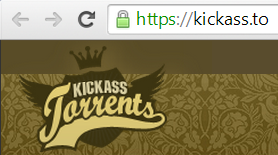
 February last year,
February last year, 